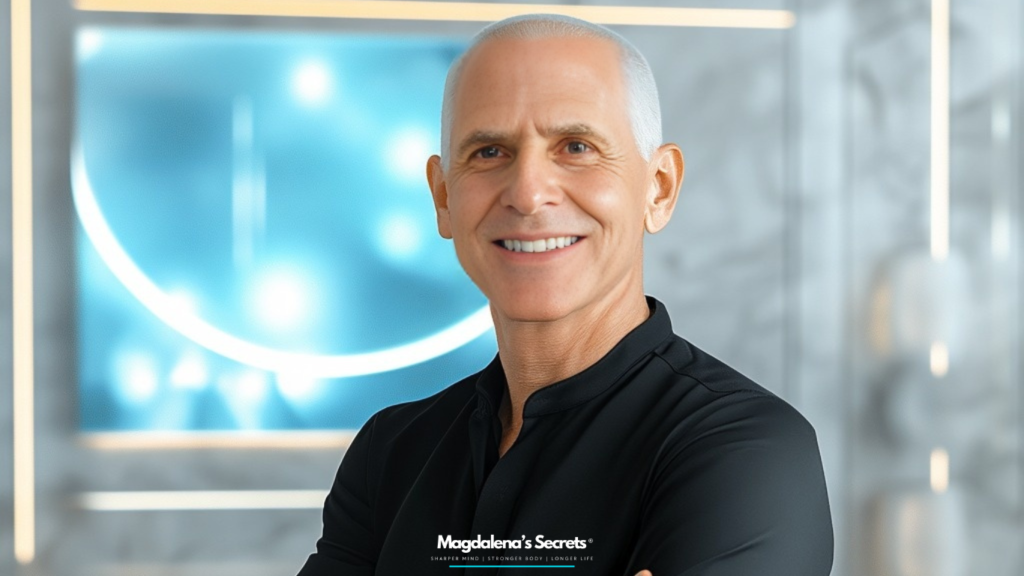When we think about improving our mental health, we often jump to therapy, meditation, or better nutrition. But one of the most powerful and often overlooked tools is also the simplest: sleep. According to renowned psychiatrist Dr. Daniel Amen, “Sleep is the foundation for mental and emotional health. Without it, no mental health goal can be fully achieved.”
Dr. Amen, founder of the Amen Clinics and author of multiple bestsellers including Change Your Brain, Change Your Life, has spent decades using brain imaging (SPECT scans) to study how lifestyle factors, including sleep, affect the brain. His conclusion? Poor sleep can sabotage your brain—and your mental well-being.
Sleep: The Brain’s Reset Button
Every night, during sleep, your brain performs essential tasks:
- It cleanses itself of toxins and waste (via the glymphatic system)
- It processes emotions and experiences
- It recharges neurotransmitters like serotonin, dopamine, and GABA
- It consolidates memory and strengthens neural connections
Without proper sleep, the brain cannot perform these tasks effectively. Dr. Amen notes that chronic sleep deprivation shows up on brain scans as decreased activity in the prefrontal cortex, the area responsible for decision-making, focus, impulse control, and emotional regulation. This can lead to symptoms of anxiety, depression, irritability, and even aggression.
The Mental Health Risks of Poor Sleep
Research from Amen Clinics shows that people with poor sleep patterns are more likely to suffer from:
- Mood disorders such as depression and anxiety
- ADHD symptoms like poor focus and distractibility
- Memory problems and brain fog
- Addictive behaviors due to impaired impulse control
- Negative thought patterns, including rumination and catastrophizing
Dr. Amen stresses that poor sleep can also increase activity in the brain’s limbic system, often referred to as the “emotional brain.” Overactivity here is associated with sadness, negativity, and emotional instability—a combination that makes it hard to stay motivated or optimistic about mental health goals.
Sleep and Emotional Self-Regulation
One of the most compelling findings from Dr. Amen’s work is the link between sleep and self-regulation—your ability to manage thoughts, emotions, and actions. Inadequate sleep weakens this ability dramatically.
When you’re sleep-deprived:
- You’re more reactive to stress and negative feedback
- Your judgment is impaired
- You’re more likely to engage in self-sabotaging behaviors (like overeating, impulsive spending, or snapping at loved ones)
These patterns create a negative loop. Poor sleep worsens mental health, and poor mental health disrupts sleep. Breaking this cycle starts with making restorative sleep a non-negotiable part of your mental wellness plan.
Dr. Amen’s Sleep-Boosting Brain Habits
In his clinical practice, Dr. Amen recommends the following sleep strategies to support mental health:
✅ Practice “brain envy” – care deeply about your brain and protect it with sleep ✅ Avoid substances that disrupt brain function, like alcohol, marijuana, or excessive caffeine ✅ Get natural sunlight in the morning to regulate your circadian rhythm ✅ Establish a sleep ritual: go to bed and wake up at the same time daily ✅ Optimize your sleep environment: cool, dark, quiet, and free of electronics ✅ Use tools like the Oura Ring or sleep apps to track and improve your sleep patterns ✅ Exercise regularly, but not too close to bedtime ✅ Say no to late-night screen time, which interferes with melatonin production
He also emphasizes the importance of addressing hidden brain injuries, infections, and hormonal imbalances that may impair sleep—and therefore mental health—without people even realizing it.
Conclusion: No Mental Health Without Sleep Health
As Dr. Daniel Amen says, “You cannot heal your mind if your brain is tired.” No matter what your mental health goals are—whether it’s emotional stability, better focus, reduced anxiety, or stronger relationships—they all depend on the foundation of healthy, consistent sleep.
In the pursuit of emotional wellness, don’t underestimate the power of a full night’s rest. Prioritize your sleep and watch your mental clarity, resilience, and motivation rise with it.




